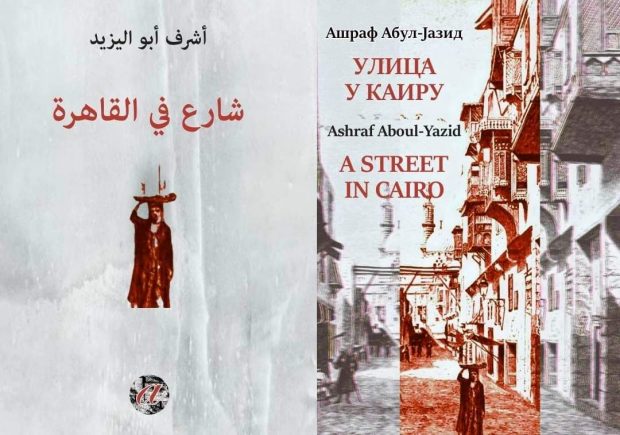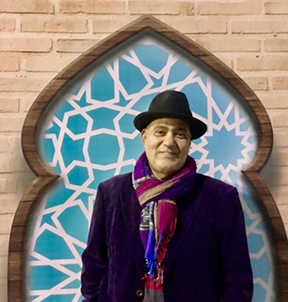
Association Alia Mundi: “A Street in Cairo” by eternal traveler poet Ashraf Aboul-Yazid

The cover of the book
BELGRADE: The Association for Promoting Cultural Diversity Alia Mundi has just published its latest publication – “A Street in Cairo”, the poetry bookby renowned Egyptian writer, journalist, translator and editor Ashraf Aboul-Yazid.
The book was published as a trilingual edition in Serbian, English and Arabic. The translation from English to Serbian was done by Ana Stjelja. The afterword was written by Abdullah Al-Samati who wrote on the eternal traveler experience of the poet Ashraf Aboul-Yazid.
“The poetic experience of the poet Ashraf Aboul-Yazid appears in his elaborate reading of his poetic self-awareness, and in projecting his own experience of travel and alienation as a non-textual written record, but rather as a semantic ground that flickers in the backgrounds of texts,” he wrote.
“To form a kind of textual substrate that is interpreted or received in advance, so that it works in the memory of texts, and in the methods of its investigations of the world. In light of this awareness, the poet performs a charming textual game represented in his constant and active poetic talk about memory.
The memory here is not necessarily the poetic memory whose interpretation may be withdrawn or his integrated anti-war, hence this research seeks to dive into the poetic potentials presented by Ashraf Aboul-Yazid: the poet, the emigrant, the eternal traveler, the expatriate, the plastic artist, the photographer, and the journalist who lived through various journeys, and practiced multiple travels, as if he were a contemporary Sinbad seeking to reveal before to pick him up adventurous, and seeks to contemplate and question before certainty takes him away.
The poetic experience of Ashraf Aboul-Yazid deserves contemplation, because it is an experience emerging from a poet who practiced its positions, not imagining them, who lived in exile, endured travel, and suffered its pains and wounds in a continuous nostalgic horizon.
It is an experience that gives us how to alienate the Egyptian poet, how he stares at the streets and contemplates them as if he is staring at the streets of his own memory, his own childhood, how he reformulates his imagination while he misses the details of the sensory place to take refuge in the spiritual place that he carries on his back in all his travels.
It is the nature of the Egyptian traveler everywhere he goes, remains attached in its original position. In the faces of the lanes, villages, and cities that he experienced and grew up in, and from here the memory continues to work, and the poet continues to imagine in search of the absolute imagination himself.

Ashraf Aboul-Yazid, writer, translator and journalist from Egypt, has authored more than 35 books of poetry, novels, biographies, criticism, children’s literature and translations.
As a journalist, he worked in Egypt, Oman, Kuwait, Saudi Arabia and Korea. He works as the editor-in-chief of the Silk Road Literature Series in Egypt and as the editor-in-chief of the Korean Arabic-language portal the AsiaN.”


